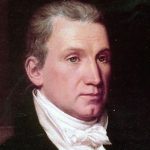Miklós Horthy de Nagybanya was born in 1868. He was destined to become an Admiral, and Regent while King Charles of Hungary was in exile. He was a member of a senior Protestant land-owning family, but instead of the army he trained in the Navy.
For a while he was a young aide-de-camp in the service of Franz Joseph, and then spent the First World War in the Adriatic, distinguishing himself in the Battle of Otranto in 1917. Shortly afterwards he was appointed Commander-in Chief of the Austro-Hungarian Navy.
In Hungary there was a Communist regime organised by Béla Kun, and Horthy swore to destroy it. He arrived in Budapest in November 1919 and was able to stage a counter-revolution which succeeded. This is by no means as easy as it sounds, because counter-revolutions aimed at a Communist regime established by rebellion are difficult to upset.
Horthy became Regent of Hungary and remained so for 24 years, even refusing to recognise King Charles who returned (secretly) from exile in Switzerland in 1921 to claim his crown. Charles went to live in Madeira, where he died in 1922.
Regent Horthy’s policy was to maintain the social order in Hungary, and work on revision of the Treaty of Trianon abroad. That ‘agreement’ had been signed after the First World War, and by it Hungary had lost two-thirds of her pre-war territory, in fact the lands ceded to Rumania alone were larger than the area left to Hungary. Czechoslovakia had gained Slovakia and Ruthenia; Rumania got Transylvania and more; Yugoslavia gained Croatia and the Voivodina q.v.). Trianon also limited the Hungarian army to less than 40,000 soldiers and made Hungary pay for reparations. Horthy fought to regain what had been Hungarian territory. He was aided in this at the beginning of the 2nd World War by grace of Hitler and the Germans. He recovered land which had been in the new Czechoslovakia and Rumania, but this Axis present did not improve his personal relations with Adolf Hitler, whom Horthy loathed.
He joined in the Axis occupation of Yugoslavia, however, and even declared war on the USSR, but at the same time he was playing a double game by maintaining contact with the Allies. In October, 1944 he tried to orchestrate a separate peace, but was arrested and imprisoned by the Nazis. When, after the War, Yugoslavia tried to get hold of Horthy to execute him as a ‘war criminal’, the United States forces refused to hand him over. He lived the rest of his life as an exile in Portugal, where he died in 1957 at the age of eighty-nine.
Count Mihály Károlyi was born in 1875 only seven years after the birth of Horthy. Mihály would learn as he grew up that he was a member of one of the most distinguished (and richest) families in Hungary. Károlyi lands stretched across the country from border to border.
After an education spent in a number other European capitals, Miháli got into Parliament at the age of thirty because of his popular liberal views – rarely encountered in a Hungarian aristocrat. But as time passed his views became infinitely more radical. Austro-Hungary inopportunely entered the First War on the side of the Germans, but the Count spent the war years leading the pro-Entente Party in Budapest. He became Prime Minister in October, 1918 and instantly sought an Armistice with the victorious Western Powers. It is said he hoped the Allies would treat his independent Hungarian state as a democratic victim of Austro-German domination. He hoped in vain. Hungary was severely punished for its presumption that the Kaiser would win.
Still, in November of that year he became provisional President of the Hungarian Republic. His attempt at essential reforms started with a division of his own immense domains among the serfs. In fact he personally supervised the re-distribution, an action not guaranteed to ensure popularity with the rest of his family.
In 1919 he was pushed out of office by the communist Béla Kun and went into exile. Even exiled from his country he suffered, because the Horthy government (see above) which overthrew Kun considered Károlyi a traitor. He was unable to return to Hungary until 1946. He served as a diplomat until 1949 under the Communist government placed in Budapest by the Soviets. Dissatisfied with the increasingly totalitarian character of the Government, he returned to exile, and died in 1955 (two years before Horthy’s demise) at the age of eighty.










Leave A Comment